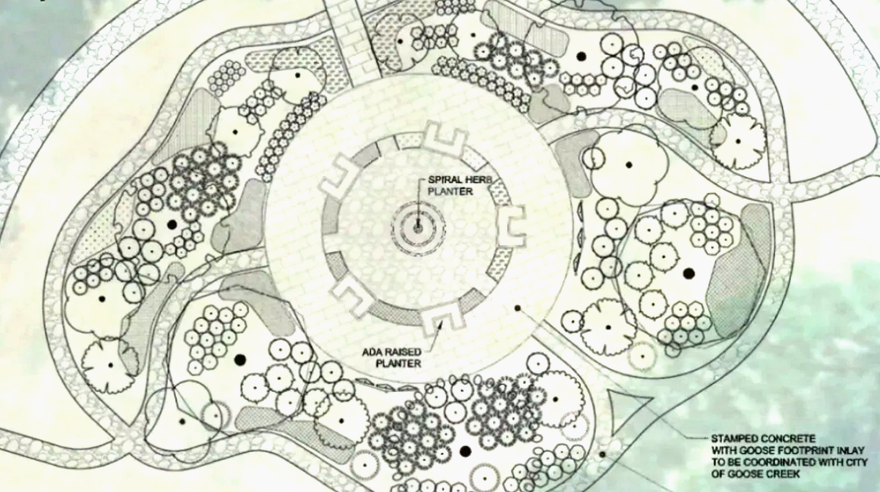Demonstrating Climate Ready America in the Southeast
Real-world testing for nationwide impact
Geos Institute is demonstrating what it takes to deliver climate resilience at scale in four southeastern states—Florida, Georgia, North Carolina, and South Carolina. Climate Ready America Southeast is the first demonstration of the Climate Ready America system, providing community-driven support, technical resources, and trusted guidance to communities with Community Disaster Resilience Zone (CDRZ) designations.
The project is a catalyst: serving at-risk communities in four states today while building the civic infrastructure to serve the entire country tomorrow.
Our partners on the ground
Navigators are hosted by trusted statewide organizations.
- Georgia: Georgia Conservancy
- North Carolina: NC Department of Environmental Quality
- South Carolina: Shi Institute for Sustainable Communities at Furman University
- Florida: Florida Climate Institute and Mississippi-Alabama SeaGrant
Technical Support Providers
Experts work with Navigators to deliver technical support to communities across the four states.
- Project IN-CORE: modeling and economic analysis
- Resilient Cities Catalyst: community workshops and project preparation
- Alloy Fundraising: grant prospecting and proposal support
- Climate Access: communications and engagement
- The Resiliency Company: project finance










Regional Collaborative
The project also draws on specialized expertise from a robust Regional Collaborative facilitated by Geos Institute. Members of the collaborative serve on working groups to address important multi-state challenges identified by Navigators. The current working groups include:
- Community-led Relocation: Geos Institute, Project IN-CORE, Climate Access, Climigration, North Carolina Navigators
- Overcoming Barriers to Best Practice in Floodplain Management and Nature Based Solutions: Southeast Sustainability Directors Network, Resilient Cities Catalyst, Project IN-CORE, Florida Atlantic University
- 5-Factor Compound Flooding Modeling: Geos Institute, Project IN-CORE, North Carolina Navigators, PEERS International Network, MS-AL Sea Grant
Geos Institute and its partners help communities build a climate-ready future from the ground up.
From Southeast to nationwide
![]() With support from the Walmart Foundation, this effort is laying the groundwork for Navigators and Climate Innovation Centers across all 11 southeastern states. The lessons learned here are shaping everything from equity-based funding models to the structure of Regional Collaboratives.
With support from the Walmart Foundation, this effort is laying the groundwork for Navigators and Climate Innovation Centers across all 11 southeastern states. The lessons learned here are shaping everything from equity-based funding models to the structure of Regional Collaboratives.
A learning system in action
This is not just implementation. It is innovation. With each interaction, we are gaining critical insights that help strengthen the Climate Ready America framework, including:
- How early community engagement builds trust and unlocks deeper impact
- Where existing support systems fall short, and how we can fill those gaps
- Why local context must shape regional strategies
In the first years, we have adapted based on what we learned:
- Improved Navigator outreach strategies that emphasize trust-building before diving into resilience planning or projects
- Added new technical assistance partners to meet real community needs, like grant writing and community engagement
- Evolved our Regional Collaborative structure to better align with local efforts and enhance peer learning across the region
These continuous improvements embody the learning-first mindset that defines Climate Ready America, one that ensures communities do not just receive services, they get smarter, faster, and more effective support over time. And they build local capacity in the process.
Project goals and status
Climate Ready America Southeast is our first regional demonstration of what coordinated, state-level climate support can look like. Focused on helping communities with Community Disaster Resilience Zone (CDRZ) designations from FEMA, this initiative pairs trusted local Navigators with robust technical assistance to meet communities where they are and help them move toward their climate resilience goals.
Project goals:
- Provide one-on-one support to under-resourced communities across southeastern states.
- Build local capacity and connect communities to existing climate tools, funding, and strategies.
- Test and refine scalable models for Navigator outreach, technical support, and regional coordination.
- Launch the first Climate Innovation Center in Georgia with future centers coming online soon across the southeast.
Current status:
- Active in Florida, Georgia, North Carolina, and South Carolina.
- Navigators supporting 72 CDRZ communities.
- First Climate Innovation Center strategic launch plan developed in Georgia
- Technical assistance expanded based on community input (e.g., grant writing, communications).
- Regional Collaborative established to provide ongoing collaboration and knowledge sharing.
Community Stories

News & Media Coverage
- Grant from Walmart funds new Furman Shi Institute climate resilience manager position (Greenville Journal, February 5, 2023)
- Shi Institute to boost climate resilience in Pee Dee, Lowcountry (Myrtle Beach Post & Courier, February 2, 2024)
- Who Governs the Community Disaster Resilience Zones? (Urban Institute, December 12, 2023)
- FCI Partners with Climate Ready America to Launch the Southeast Navigator Network (Florida Climate Institute)
- Furman set to assist at-risk communities in building climate, natural disaster resilience (Furman News, November 30, 2023)
- Ashland-based institute launches disaster resilience project (Ashland News, November 23, 2023)
- Official Press Release (November 8, 2023)
Help us expand climate resilience
These four states are just the start. With proven models and growing momentum, we are expanding across the Southeast and will move on to other regions as resources allow.


 Samantha Medlock is President of Climate Risk Advisors, helping communities and organizations advance equity, sustainability, and resilience. Her career began chasing floods as a local official in Texas Flash Flood Alley—a hands-on experience that still shapes her approach to climate and disaster risk management.
Samantha Medlock is President of Climate Risk Advisors, helping communities and organizations advance equity, sustainability, and resilience. Her career began chasing floods as a local official in Texas Flash Flood Alley—a hands-on experience that still shapes her approach to climate and disaster risk management.
 Arsum is the Senior Adaptation and Coastal Resilience Specialist for the National Wildlife Federation’s Southcentral Region. In this role, she advances climate adaptation efforts, with a focus on nature-based approaches to address the impacts of climate change and extreme events across the Gulf region. She has authored and co-authored numerous publications on climate impact assessments and adaptation solutions. Additionally, she regularly participates in state-based coastal resilience and hazard mitigation planning across the Gulf, collaborating with regional and local stakeholders.
Arsum is the Senior Adaptation and Coastal Resilience Specialist for the National Wildlife Federation’s Southcentral Region. In this role, she advances climate adaptation efforts, with a focus on nature-based approaches to address the impacts of climate change and extreme events across the Gulf region. She has authored and co-authored numerous publications on climate impact assessments and adaptation solutions. Additionally, she regularly participates in state-based coastal resilience and hazard mitigation planning across the Gulf, collaborating with regional and local stakeholders. Frank is the former President of the Reinsurance Association of America. Frank currently serves on the Advisory Board of the OECD’s International Network for the Financial Management of Large-Scale Disasters, the RAND Center on Catastrophic Risk Management and Compensation, and the University of Cincinnati’s Carl H. Lindner III Center for Insurance and Risk Management Advisory Board.
Frank is the former President of the Reinsurance Association of America. Frank currently serves on the Advisory Board of the OECD’s International Network for the Financial Management of Large-Scale Disasters, the RAND Center on Catastrophic Risk Management and Compensation, and the University of Cincinnati’s Carl H. Lindner III Center for Insurance and Risk Management Advisory Board. Jim is a multilingual world traveler. Based in Bavaria during the 1970s, Jim spent most of this period in India, Afghanistan and Nepal, where he founded and operated a charitable medical clinic serving Tibetan Refugees. He settled in Oregon in 1983 on a forested ranch in the Umpqua National Forest.
Jim is a multilingual world traveler. Based in Bavaria during the 1970s, Jim spent most of this period in India, Afghanistan and Nepal, where he founded and operated a charitable medical clinic serving Tibetan Refugees. He settled in Oregon in 1983 on a forested ranch in the Umpqua National Forest. Dr. Micah Hahn is an Associate Professor of Environmental Health in the Institute for Circumpolar Health Studies at the University of Alaska-Anchorage. She received her joint PhD in Epidemiology / Environment and Resources from the University of Wisconsin-Madison and her MPH in Global Environmental Health from Emory University. Subsequently, she was a postdoctoral fellow for the CDC Climate and Health Program, and in this position worked collaboratively with the CDC Division of Vector-borne Diseases and the National Center for Atmospheric Research. Her research focuses on understanding the health impacts of climate change and working with communities to develop locally-relevant adaptation and resilience-building strategies. Dr. Hahn is also on the Management Team of the Alaska Climate Adaptation Science Center.
Dr. Micah Hahn is an Associate Professor of Environmental Health in the Institute for Circumpolar Health Studies at the University of Alaska-Anchorage. She received her joint PhD in Epidemiology / Environment and Resources from the University of Wisconsin-Madison and her MPH in Global Environmental Health from Emory University. Subsequently, she was a postdoctoral fellow for the CDC Climate and Health Program, and in this position worked collaboratively with the CDC Division of Vector-borne Diseases and the National Center for Atmospheric Research. Her research focuses on understanding the health impacts of climate change and working with communities to develop locally-relevant adaptation and resilience-building strategies. Dr. Hahn is also on the Management Team of the Alaska Climate Adaptation Science Center. Michael is a former Founding Principal of Resilient Cities Catalyst, a global non-profit helping cities and their partners tackle their toughest challenges. He is currently the Executive Director of Climate Resilience Academy at the University of Miami.
Michael is a former Founding Principal of Resilient Cities Catalyst, a global non-profit helping cities and their partners tackle their toughest challenges. He is currently the Executive Director of Climate Resilience Academy at the University of Miami. Dr. Quintus Jett is a consultant, educator, and strategist for public causes. He has a doctorate in Organizations & Management from Stanford University, and a two-decade faculty career which spans schools, departments, and programs of business, engineering, liberal studies, divinity, and public and nonprofit management. Following Hurricane Katrina in 2005, Dr. Jett launched a volunteer project in New Orleans, which enlisted residents, students from over a dozen colleges and universities, and hundreds of others to field map the city’s Gentilly district, Lower Ninth Ward, and New Orleans East. Dr. Jett is an innovator in higher education, bridging the divide between academic research and the other priorities of the modern university, including student access and diversity, community engagement, and providing foundations for life-long learning in today’s rapidly changing world.
Dr. Quintus Jett is a consultant, educator, and strategist for public causes. He has a doctorate in Organizations & Management from Stanford University, and a two-decade faculty career which spans schools, departments, and programs of business, engineering, liberal studies, divinity, and public and nonprofit management. Following Hurricane Katrina in 2005, Dr. Jett launched a volunteer project in New Orleans, which enlisted residents, students from over a dozen colleges and universities, and hundreds of others to field map the city’s Gentilly district, Lower Ninth Ward, and New Orleans East. Dr. Jett is an innovator in higher education, bridging the divide between academic research and the other priorities of the modern university, including student access and diversity, community engagement, and providing foundations for life-long learning in today’s rapidly changing world. Scott is Monfort Professor of Atmospheric Science at Colorado State University. He has written about 100 publications in the peer-reviewed climate literature, is a former editor of the Journal of Climate, and served for five years as founding Science Chair of the North American Carbon Program.
Scott is Monfort Professor of Atmospheric Science at Colorado State University. He has written about 100 publications in the peer-reviewed climate literature, is a former editor of the Journal of Climate, and served for five years as founding Science Chair of the North American Carbon Program. Linda has many years of experience in disaster preparedness and resilience. She has been an elected official on the Linn County Iowa Board of Supervisors, Chair of the Metropolitan Planning Organization, the East Central Iowa Council of Governments, the statewide Mental Health Developmental Disability and the Linn County Board of Health. Langston is a former president of the National Association of Counties (2013-2014).
Linda has many years of experience in disaster preparedness and resilience. She has been an elected official on the Linn County Iowa Board of Supervisors, Chair of the Metropolitan Planning Organization, the East Central Iowa Council of Governments, the statewide Mental Health Developmental Disability and the Linn County Board of Health. Langston is a former president of the National Association of Counties (2013-2014). Ken works with families and organizations as a mediator, organizational consultant, trainer and facilitator. Along with his passion for helping people prepare for and reduce climate change, Ken also volunteers as a mediator through Mediation Works and is passionate about supporting youth through mentoring with Boys to Men of Southern Oregon.
Ken works with families and organizations as a mediator, organizational consultant, trainer and facilitator. Along with his passion for helping people prepare for and reduce climate change, Ken also volunteers as a mediator through Mediation Works and is passionate about supporting youth through mentoring with Boys to Men of Southern Oregon. Matthew is a retired high school teacher who was once honored as Oregon High School Social Studies Teacher of the Year. Before his teaching career he was in the restaurant business in Portland. He is also a lawyer who has been a member of the Oregon State Bar Association since 1980.
Matthew is a retired high school teacher who was once honored as Oregon High School Social Studies Teacher of the Year. Before his teaching career he was in the restaurant business in Portland. He is also a lawyer who has been a member of the Oregon State Bar Association since 1980. Andrea is the Resilience Policy Advisor for the North Carolina Office of Recovery and Resiliency. She works across state agencies and with local governments to increase the state’s resilience to the impacts of climate change.
Andrea is the Resilience Policy Advisor for the North Carolina Office of Recovery and Resiliency. She works across state agencies and with local governments to increase the state’s resilience to the impacts of climate change.